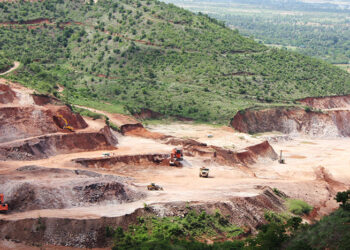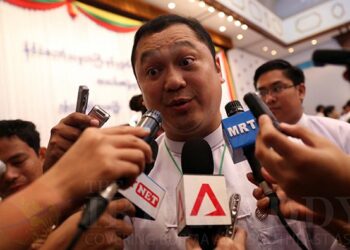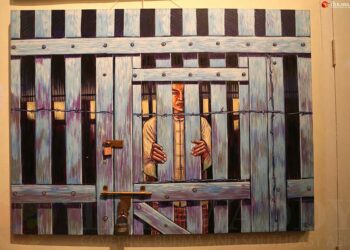RANGOON — Twelve farmers from Pegu Division’s Taungoo Township publicly demanded on Thursday that charges against them be dropped and thousands of acres of land allegedly confiscated by a major Burmese company be returned.
Since 2009, locals claim that about 5,000 acres in Ngaga Mouk village tract have been seized by the Kaung Myanmar Aung (KMA) group of companies. The conglomerate includes mining, construction, forestry and hospitality enterprises, and is owned by prominent businessman Khin Maung Aye, the chairman of Burma’s Co-operative Bank.
The farmers held a press conference led by prominent labor activists Myint Soe and Saw Do Htoo at the Myanmar Journalist Network on Thursday morning. Saw Do Htoo said that the farmers have faced criminal charges of trespassing, defamation and peaceful protest in the Taungoo courts over the last seven years as they try to regain ownership of the land.
He explained that Burma’s former military government had granted KMA a license to open a 2,400-acre teak plantation located between four villages in the tract—Htone Bo, Ngaga Mouk, Yay Ohe Zin and Kyatchae Chaung. Farmers and the local land registration department were surprised when the company then reportedly confiscated more than 5,000 acres of land.
“I don’t even want to hear the name of Kaung Myanmar Aung,” said Daw Nyunt, a 60-year-old villager from Ngaga Mauk.
She described the company as “very cunning” and said that they had tried to offer an “unfair” amount of compensation for the villagers’ land—fields which they say they have farmed for more than three generations. Not all of the farmers possess ownership documents for the land, prompting businessmen from KMA to reportedly purchase the “vacant” area from the government.
Earlier this year, farmers from four villages say that a verbal consensus was reached with the company’s deputy general manager, Saw Maung. Seven key demands were allegedly presented and the meeting concluded when the company promised to “release” the land, according to one local, Saw Kha Hpaw.
However, since the agreement was not in writing, villagers’ are concerned about its validity.
“We don’t believe them,” said Saw Kha Hpaw. “We requested that they deliver an official statement with the signature of Khin Maung Win, because his name was on the teak plantation license.”
Deputy general manager Saw Maung acknowledged that KMA had met with the farmers in January. He confirmed that the villagers had made clear their demands, including the dismissal of charges against them, compensation for farmland, and a promise to return the land, signed by Khin Maung Aye. Of these, Saw Maung agreed that the company would give back the land and drop the charges, but said land compensation should be left up to the owner.
‘‘I told them to meet with the landowner to discuss the compensation but they said they didn’t trust me,” he said.
Saw Maung estimates that his company has compensated the villagers with more than two billion kyats (US$1.6 million) from 2009 until the present. He said that the license for the teak project was obtained officially and that no additional land was confiscated, as the farmers allege; he suggested that their demand for further funds was motivated by greed.
The deputy general manager also claimed that the establishment of a teak plantation in the area was aimed at preventing climate change.

















